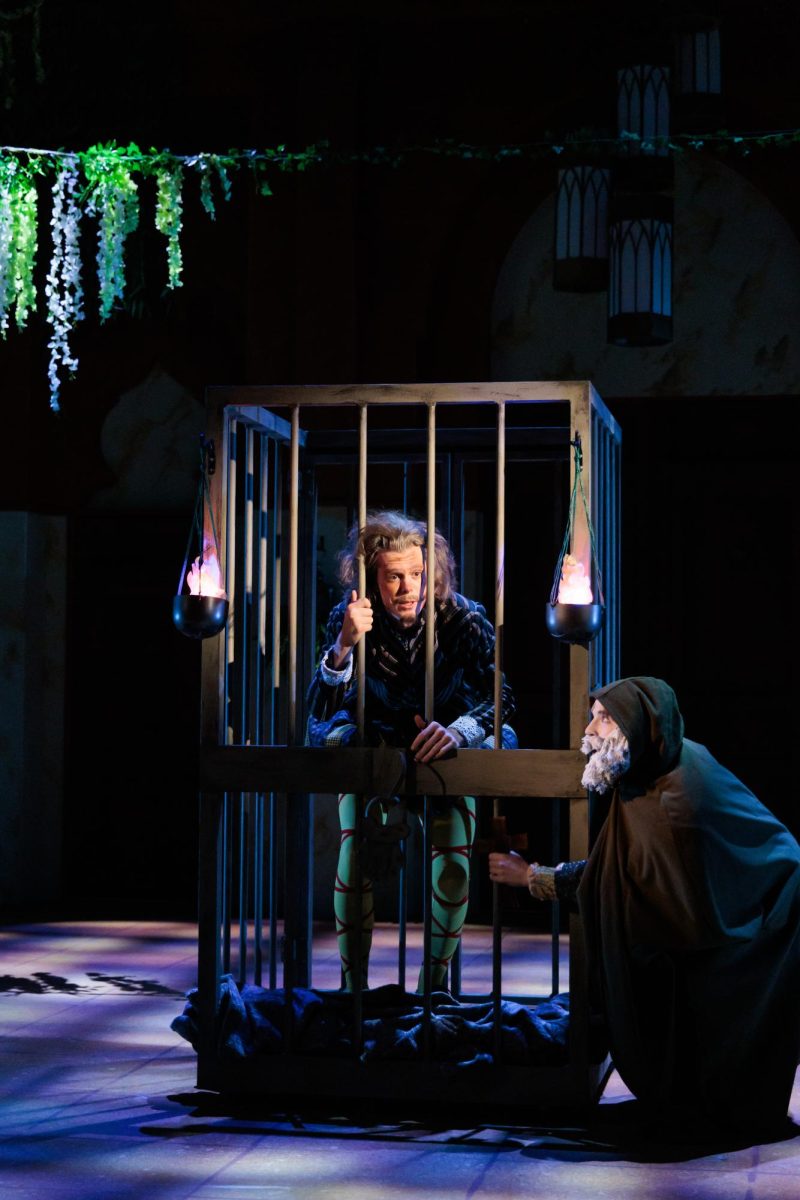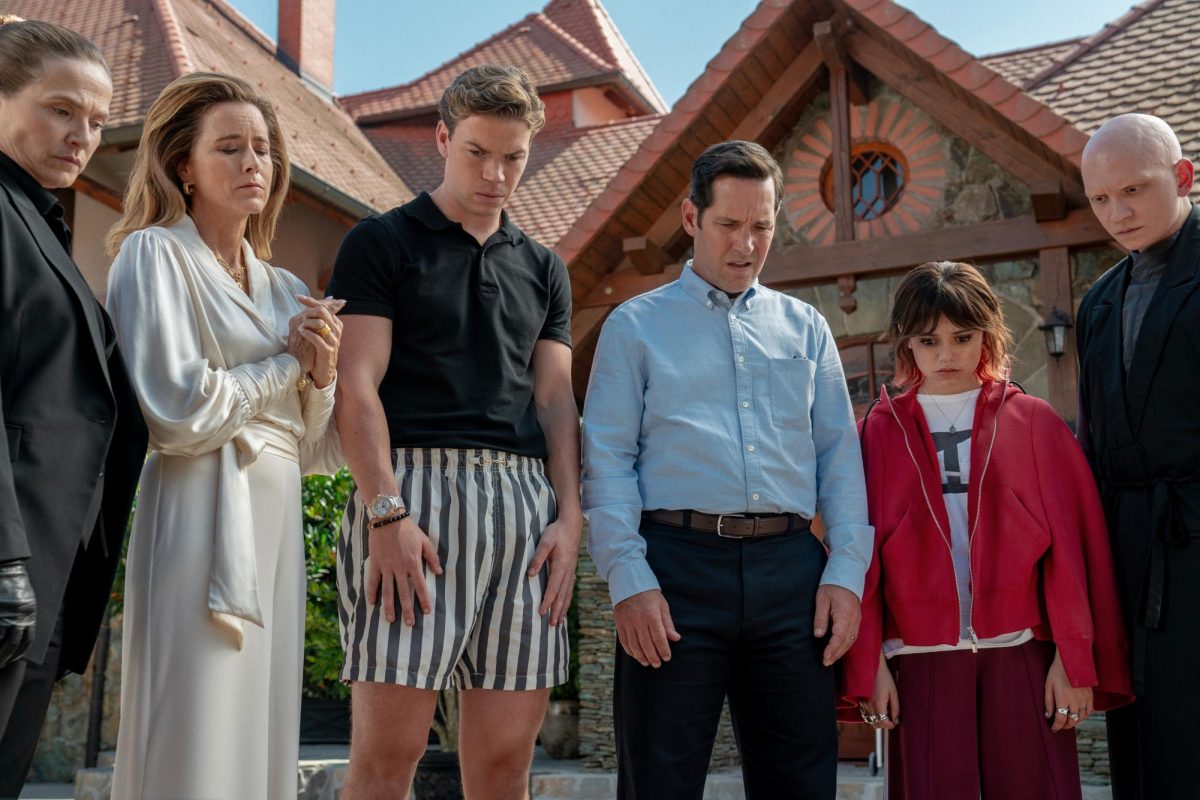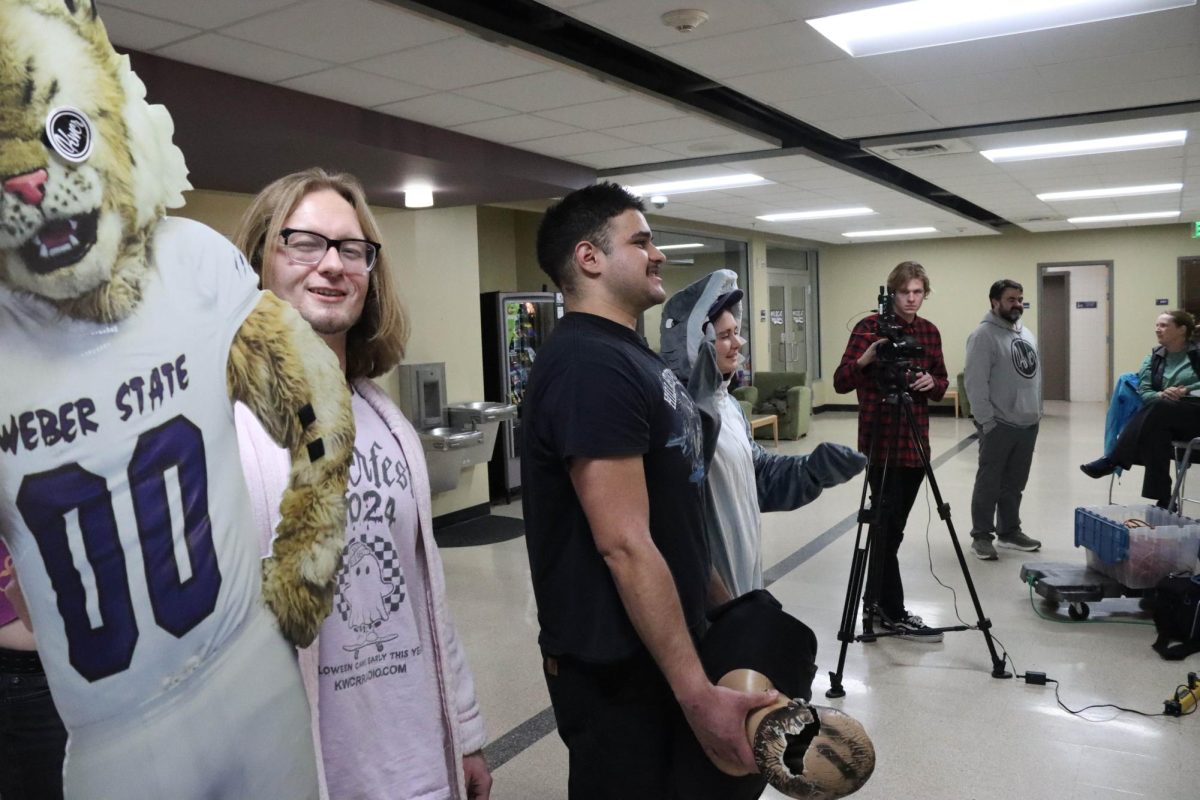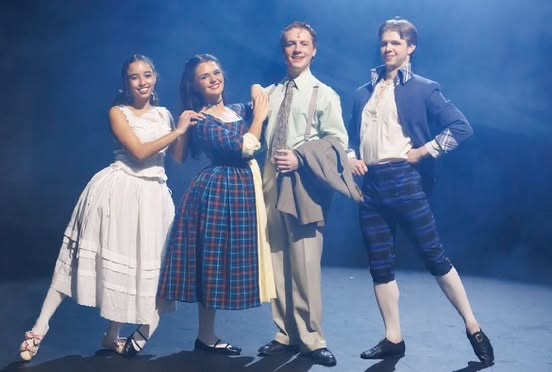Weber State University students were taken on a trip back to the roots of theater when the 41st Annual Classical Greek Theater Festival came to WSU and presented the Greek classic Iphigenia in Tauris.
The production of Iphigenia in Tauris has been touring to WSU for 25 years under the guidance of producer Jim Svendsen. Svendsen was a Greek professor at the University of Utah for 42 years, and began the traditional Greek theater tour around 1971. The theater tour originated from the University of Utah’s theater department, but has recently moved its home to Westminster College.
This year’s tour included seven shows, with WSU’s Greek Festival being the last one, and usually takes $30,000 to $40,000 to produce every year.
“We always get lots of help with the loading and the marketing,” Svendsen said. “We find this a very friendly place and a great audience.”
According to Svendsen, WSU’s audiences always show great “filoxenia,” or hospitality, which is an imperative quality in Greek culture.
The show was done in an interpretation from the traditional Greek theater style, which originated outdoors in large amphitheaters. These plays used bright masks, expressive body gestures and language that was supposed to depict emotions, like anger or lamentation, verbally to the audience.
“All of our modern theater today is still based on the classical model,” said Phillip Lowe, a theater teacher at WSU and the costume designer for the production of Iphigenia in Tauris. “We still use these things in modern play-writing. It’s really great for people to watch this just to see that, even though the art form has evolved over time, some of the things still remain the same.”
Anne Stewart Mark was the show’s director, and expressed the great collaborative effort it took to choose a good translation, develop choreography, adjust to a new music score and just make the show relatable, but still able to retain the ancient Greek feeling.
“The biggest challenge was just tying all the elements together,” Mark said.
The plot of this play focuses on the character Iphigenia, the firstborn daughter of King Agamemnon, who is tricked into being sacrificed by her father so his troops will be able to set sail through a motionless wind and on to Troy during the Trojan War. Iphigenia is saved by Artemis, goddess of childbirth and the hunt, who places a deer in Iphigenia’s place on the sacrificial altar and takes her to the island of Tauris to serve as a high priestess in her temple.
For years, Iphigenia is forced to carry out rituals of blood sacrifice on any male Grecians who set foot on the island. Iphigenia laments the loss of her family and wishes for a way to escape Tauris and be reunited with her loved ones. Years later, her brother, Orestes, whom she believes to be dead, ends up coming to the island, and they hatch an intriguing plot to escape.
“Family and brotherhood and love are core values in this show,” said Lexie Allen, a sophomore theater major at Westminster, who played the lead role of Iphigenia. “I took from this play how important those bonds are with people.”
In a pre-show lecture, Svendsen discussed the Greek concept of “miasma,” or pollution, in which a person was considered socially tainted by severe mental trauma, which painted their hands red.
“Psychologically, both of these characters are traumatized by the events that have just happened,” Svendsen said. “How are they going to . . . become psychologically sound? That’s what happens in the first of the play.”
Despite the play’s tragic setting, Mark said she believes a modern audience can find inspiration in the show.
“What I love about this piece, and the reason I chose it, was for the wonderful reconciliation that happens,” Mark said. “Right now, the world is so trying and it’s so difficult with all the wars. When Euripides wrote this, I think he felt everybody needed a lighter take on life. I felt we did too. No matter what trials these characters go through, it all turns out all right in the end.”
The show for next year’s Greek theater festival has yet to be chosen, but new director Larry West has proposed four possibilities, one of which is the play Electra, also written by Euripides, which continues with the story of Iphigenia’s and Orestes’ sister.
The tour is hoping to expand, and an open casting call will most likely be given again, since the auditions for Iphigenia in Tauris brought together a mixed talent pool from the U of U, Westminster and WSU.













